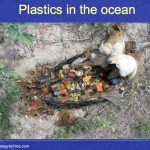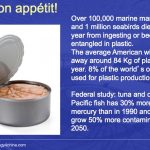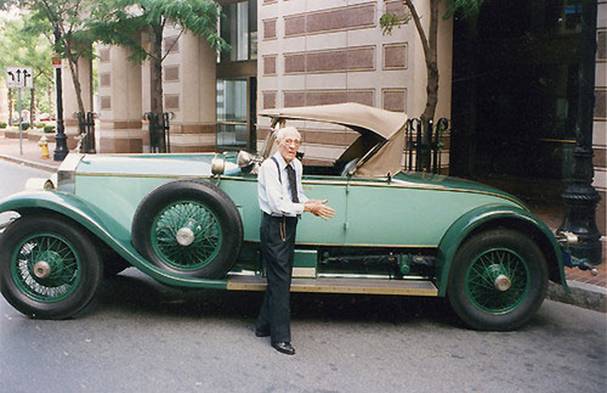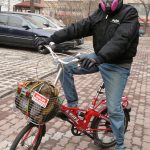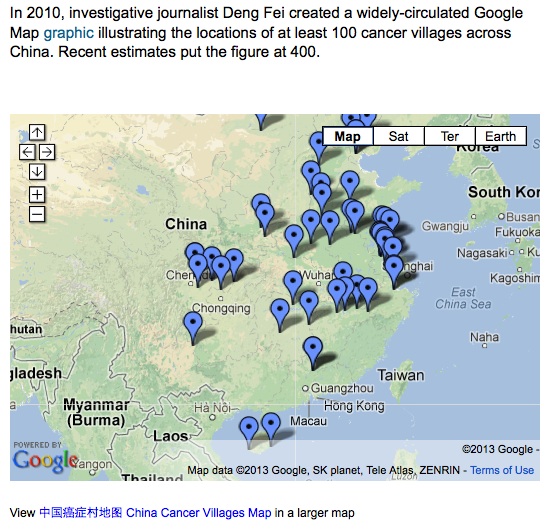Compact Fluorescent Light Bulbs (CFLs) can help you save money, use less energy, reduce light bulb changes, and lower greenhouse gas emissions, which lead to climate change.
In China they have become very popular and now the old type light bulbs are disappearing at a fast pace.
However we face here a serious problem, the same as for the batteries, printer and copier cartridges: there is virtually nothing in place for safe recycling. Most people simply put it all in the trash with considerable dangers for the environment.
Worse, in case a CFP breaks do expect our Chinese friends (especially the maids) to do everything they should NOT do. Reason: mercury poisoning. One more item on the list of ignorance here. What is the government doing about it? Nothing.
Ever seen a collection point in supermarkets for used batteries and CFL? Obviously never I guess.
Read more:
http://www2.epa.gov/cfl
http://worldtruth.tv/understanding-the-dangers-of-fluorescent-light-bulbs/
Being green and protecting the environment is often done in the wrong way – CFLs and electric bikes are some of the (bad) examples. This is also mentioned in my book Toxic Capitalism.
Man Invents Machine To Convert Plastic Into Oil
As discussed in my book, we waste tons of plastics that pollute our soil, the rivers, lakes and oceans. The problem is that those plastics now enter the food chain (enjoy your fish!) but also use oil. See here two slides of my book presentation, talking about plastics in a dead albatross and more.
But some people show the way – there are solutions, not only to waste less but to recycle.
In an efficient and safe effort to save us from the ill-effects of plastic waste, Akinori Ito has developed a machine which converts plastic back into oil.
See the clip in Japanese with English subtitles.
http://www.flixxy.com/convert-plastic-to-oil.htm
The machine produced in various sizes, for both industrial and home uses, can easily transform a kilogram of plastic waste into a liter of oil, using about 1 kWh of electricity but without emitting CO2 in the process. The machine uses a temperature controlling electric heater instead of flames, processing anything from polyethylene or polystyrene to polypropylene (numbers 2-4). Comment: 1 kg of plastic produces one liter of oil, which costs $1.50. This process uses only about 1 kWh of electricity, which costs less than 20 cents! (as mentioned on flixxy)
Are electric cars green? Some disagree
See the article “Don’t kid yourself that electric taxis are green” by Tom Holland in SCMP:
http://www.scmp.com/business/article/1238505/dont-kid-yourself-electric-taxis-are-green
I do not fully agree with Tom Holland but he does raise some valid points. We need indeed to look at the global ecological footprint. But saying no to e-vehicles is wrong.
Their technology needs to improve and most important is to tackle the batteries. In the case of e-bikes in China, those are actually not green at all, because of the lead acid batteries. Lithium batteries are also still needing a better approach. As for the energy mix and the promotion of e-vehicles, read “Toxic Capitalism”: contrary to what most believe China is making serious efforts to increase the use of non-coal/oil based power stations, with renewable energy, natural gas, nuclear, etc. (leaving aside the issue of nuclear here). Trying to demonstrate a diesel or gasoline car is better is like trying to say, wind turbines and solar are bad. I personally and officially recommended the use of e-vehicles for the city of Beijing in the 12th Five Year Plan; the recommendation followed, except for some further incentives I had listed.
NYT article shows the extent of e-waste in the USA
“Where Do Old Cellphones Go to Die?”
Article in IHT/NYT by LEYLA ACAROGLU
Published: May 4, 2013
See the article: http://www.nytimes.com/2013/05/05/opinion/sunday/where-do-old-cellphones-go-to-die.html
“Americans replace their cellphones every 22 months, junking some 150 million old phones in 2010 alone. Ever wondered what happens to all these old phones? The answer isn’t pretty.”
Indeed, not pretty as I explain in my book Toxic capitalism. A lot of the e-waste ends up in China, with the dramatic impact on the health of the people involved in recycling, Chinese way, hence the “cancer villages”. The cover of my book shows the arrival yard of e-waste in a Beijing factory, one of the few that handles e-waste correctly.
I always try to buy “top of the line” electronics, so I can use them much longer than normally. I had a mobile that I used for at least five years (twice repaired). My old iMac, reaching ten years is still doing a good job for some of the software – even better than my now 3-year old MacBook Pro.
The article in the NYT also shows some frightening statistics about how many tons of e-waste is generated (computers, monitors, TV, printers and so on):
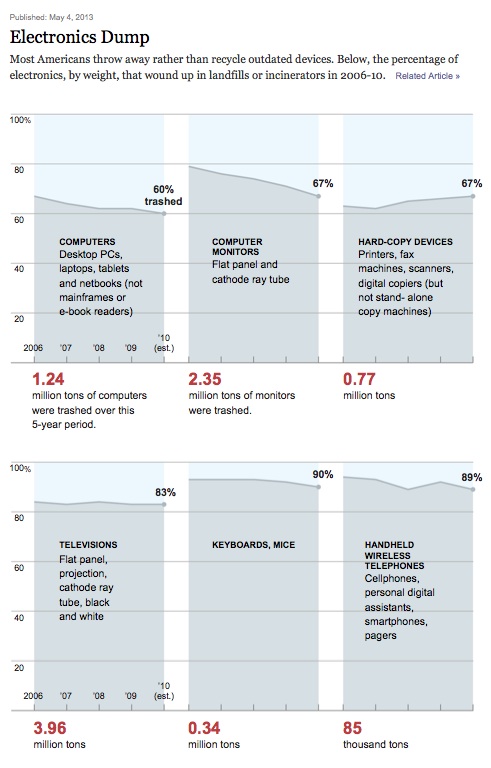
We should stop this madness.
“Toxic Capitalism” at work: the drama in Dhaka factory
See the article in SCMP:
26 April 2013 – Dozens pulled alive from Dhaka
factory as toll hits 256
Screams filtering through the cracks in the concrete suggest more survivors awaiting help
Agence France-Presse in
Savar
http://www.scmp.com/news/asia/article/1222144/bangladesh-factory-collapse-kills-124-injures-hundreds
“Toxic
Capitalism” at work. Consumers are happy around the world to buy all the cheap stuff from countries such as Bangladesh, ignoring where and
how it was made, then criticize the horrible conditions. The companies involved strike it rich while the workers suffer, or worse, perish.
Once more hypocrisy from the West as long as they do not enforce the due diligence of the complete supply chain. The horrors will not stop as
long as the West does not change its habits of over-consumption and not paying a fair price for durable goods. Shop till you drop and waste
our planet. Never mind the workers in Bangladesh, China etc.
Man owned and drove the same car for 77 years
They certainly don’t make ’em like that anymore. Call that quality and
durability” as I preach in my book Toxic capitalism. Of course you could say, bad for the economy, no business for the car makers. On the
other hand, look at all the jobs generated by the owner, using servicing for the car. Jobs are jobs.
Got this sent by my friend Ginny, thanks
dear.
This man owned & drove the same car for 77 YEARS. Can you imagine even having the same car for 77 years!
Mr. Allen Swift
(Springfield, MA.) received this 1928 Rolls-Royce Piccadilly-P1 Roadster from his father, brand new – as a gift in 1928.
He drove it up until
his death in October 2005 – at the age of 102!
He was the oldest living owner of a car that was purchased new.
Just thought you’d like to
see it (great car, at least it still has character, not like all the new ones that all start looking alike).
It was donated to a Springfield museum after his death.
It has 1,070,000 miles on it, still runs like a Swiss
watch, dead silent at any speed and is in perfect cosmetic condition. That’s approximately 13,896 miles per year. 1,070,000 that’s miles not
kilometers!
Fully equipped, riding Superman!
I finally got the type of mask I was looking for, to use on my bike when
pollution is getting too bad, like today: well above 200 AQI. I tried all the other usual ones, none worked as my glasses became foggy and I
could not really breathe.
This one (3M) works OK, as it has valves for incoming and outgoing air. Tested today for the first time.
So now, fully equipped with my little SUPERMAN bike – no joke, that is actually the BAT
brand’s model name as I discovered a couple of weeks after buying it. It is a small and simple bike, no gears, giving me extra exercise when
climbing a little or when it’s windy. I already bike fast enough like this, often passing e-bikes. But I would have preferred to ride
SUPERWOMAN
Important is, it brings me around, even to Lido Hotel (twice). Rain, snow, freezing or sauna weather are normally not able to stop
me.
Translation of the (Dutch) sign: “One more car less”! (WEER EEN AUTO MINDER, from 11.11.11)
And if the crazies in DPRK start a chemical
war I might be well enough prepared. The filter stops a lot of bad stuff! And it does not allow me to scold the unruly Chinese in my path.
Environmental watchdog admits to ‘cancer village’ phenomenon
See the SCMP article of 21 February, 2013 by Ernest Kao
http://www.scmp.com/news/china/article/1155528/environmental-watchdog-admits-cancer-village-phenomenon
In my book I
mention several of the cancer villages and why they exist (e.g. the manufacturing of jeans, jewelry, lingerie …). The term refers to villages,
often located close to industrial parks or factories where villagers get sick with cancer.
I also share the opinion that water pollution
and scarcity in China is the major threat and the topic is a large chapter in my book. Now it being confirmed again that water pollution is so
severe now that close to 70% of the mainland’s lakes and rivers and over 90% of groundwater in urban areas are too contaminated for even
animals to drink from.
About 40% of locations the ministry has been monitoring contained water deemed unsafe for human consumption, despite
multibillion-dollar clean-up efforts by the government.
Severe chemical pollution in China’s water systems has caused the spread of “cancer
villages”, the country’s top environmental watchdog admitted as the Ministry of Environmental Protection published a list of so-called cancer
villages on the mainland.
It also confirmed that the levels of pollutants – including endocrine disrupting chemicals (EDCs) which interfere
with human hormones – in China’s lakes, rivers and coastal waters had surpassed international levels and the situation was now “very
grim”.
Levels of persistent organic pollutants (POPs), compounds resistant to environmental degradation and are a known carcinogen, were
also reported at dangerously high levels. Many of the chemicals have already been phased out by developed countries, it said.
According to
the report, 40,000 types of chemicals were being used in China and about 3,000 of them contained “poisonous, corrosive, explosive or
combustible properties” (see full report in Chinese)
In 2010, investigative journalist Deng Fei created a widely-circulated Google Map
graphic illustrating the locations of at least 100 cancer villages across China. Recent estimates put the figure at 400.
View 中国癌症村地 China Cancer Villages Map:
https://maps.google.com/maps/ms?hl=en&ie=UTF8&oe=UTF8&msa=0&msid=209600870352189728478.000469611a28a0d8a22dd&ll=29.568591,112.286465&spn=22.144692,16.301284&t=m&source=embed
Hopefully,
improvement is on the way.
Gilbert comments on biking issues in China Daily
My letter was published, see:
http://www.chinadaily.com.cn/opinion/2013-02/27/content_16259243.htm
Don’t forget us cyclists, 27 February:
(China
Daily 02/27/2013 page 9)
I applaud all the efforts being made to expand the subway and bus networks in Beijing. It is an important
contribution to improve Beijing’s air quality. However, too little attention is paid to cyclists like me.
The city is putting a total of
50,000 rental bikes on the streets, but we cyclists are considered second class citizens.
Cars obstruct the bike lanes, and pedestrians love
to walk in the lanes while they have all the space on the side walks.
People have a total disregard for us and if we complain we get very
angry remarks. When will the police and the authorities act to guarantee the cyclists’ interests?
Gilbert, via e-mail
Now if only someone
would do something about it…
U.S. politicians, supposed to lead the country
When one reads the following: Representative Paul C. Broun of Georgia, a
former physician (whatever THAT means) said “Evolution, embryology and the Big Bang theory are lies straight from the pit of hell”, what can
one expect from U.S. politicians?
We are in the 21st century, I thought. He joins a list of complete morons who say horrors like
that. Well, some people elected them, so, they got what they wanted.
Fortunately, some others are more civilized.
I guess Broun does not
believe men stepped on the moon too.
The Chinese government may at times be very annoying but some U.S. politicians suddenly make us feel
good to be in China.

He surely reminds me of some other extremists. Dangerous people.
